Battle of the Somme: The modern writers tackling Britain's bloodiest war
The pick of the new volumes exploring the tragic Battle of the Somme as we commemorate the centenary
On July 1st 1916, near the upper reaches of the Somme river in northern France, an earth-shattering artillery barrage ceased. Long lines of Allied soldiers scrambled over trench walls and started walking towards the German lines.
They were tragically unaware that most of the German troops had survived the shellfire. Months of bloody mayhem ensued and by November 1916 more than a million soldiers from both sides were dead or wounded.
Britain has never experienced slaughter on this scale before or since and debate still rages over whether the colossal human sacrifice was worthwhile. The battle continues to capture the public imagination and large numbers of new books are being published for the centenary. Here is IBTimes UK's pick of the best of them.
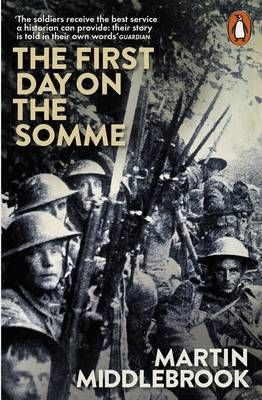
The First Day on the Somme, by Martin Middlebrook (Penguin)
A classic account of the British army's worst ever day which is packed with first-hand testimony
On 1 July 1916, lines of British solders climbed out from their trenches and began walking into No Man's Land. Extreme attrition followed as German machine guns opened up. More than 80% of one regiment alone, the 11th East Lancashires – known as the Accrington Pals – was mown down in minutes.
By the day's end there were 60,000 casualties, a third of them fatalities. The strength of Middlebrook's book is his use of the first-hand testimony he collected from survivors, many of them volunteers, who were hurled into this horrific maelstrom.
This account of the British army's worst day ever was first published in 1971 and has become a classic. It has been re-issued in paperback for the anniversary.
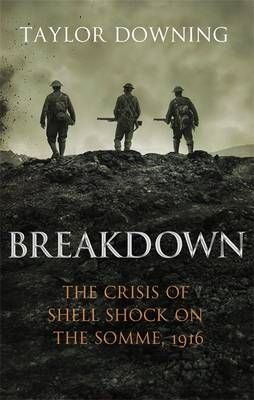
Breakdown: The Crisis of Shell Shock on the Somme, by Taylor Downing (Little Brown)
The unrecognised tragedy of the soldiers who could not cope with the horrors of trench warfare
The term "shell-shock" appeared soon after hostilities commenced. In 1915 The Lancet defined it as "commotion" in the brain caused by proximity to explosions. Medical officers reported symptoms of amnesia, paralysis, and temporary blindness and deafness.
As the Battle of the Somme gathered momentum the numbers of shell-shock victims rocketed and there were 60,000 by its end. The chiefs of staff were concerned about both direct troop losses and a more widespread loss of morale, and in November 1916 banned use of the term. Many victims of what we would nowadays call post traumatic stress disorder were forced to continue fighting and some were shot for cowardice. Downing's in-depth account of this tragic episode is shocking in its own right.
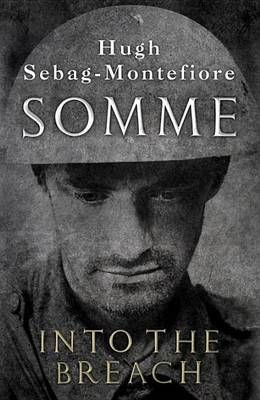
Somme: Into the Breach, by Hugh Sebag-Montefiore (Viking)
Many tales of individual bravery interwoven with challenges to misconceptions about the battle
Sebag-Montefiore has won praise for two books on World War Two – Dunkirk: Fight to the Last Man and Enigma: The Battle for the Code. This time he goes back further to tackle the Great War's biggest battle, with a 656-page doorstep of a book. He follows Middlebrook in highlighting first-hand accounts from both British and German troops, so we get many tales of outstanding courage as the soldiers braved storms of bullets and shrapnel. Sebag-Montefiore also covers the battle's often neglected positives: despite the common perception of senseless slaughter and massive failure, the Allies broke through the German front lines several times.
The whole is a multi-layered portrait of an extraordinary historical event.
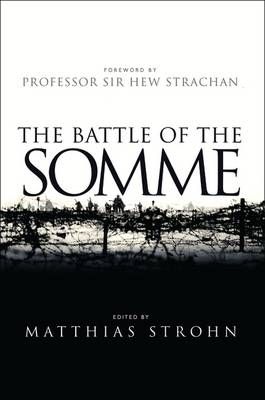
The Battle of the Somme, by Matthias Strohn and Sir Hew Stracha (Osprey Publishing)
A platoon of heavyweight pundits analyse this monstrous military engagement from many angles
Before World War One most battles took hours or days and generally had clear outcomes. That changed after 1914, with engagements lasting months and petering out inconclusively. The Somme was the most massive and murkiest of them all. This collection of a dozen essays by leading military historians sheds fresh light on various aspects of the battle. They tackle the divergent strategies of the armies involved, the evolution of British and German air combat, and the role of Dominion troops. The volume's editors are unusually distinguished.
Strohn is an officer in the German Army and lectures at Sandhurst. Stracha is a professor at Oxford and advises our government on defence strategy. Of all the volumes published to mark the anniversary, this is the weightiest.
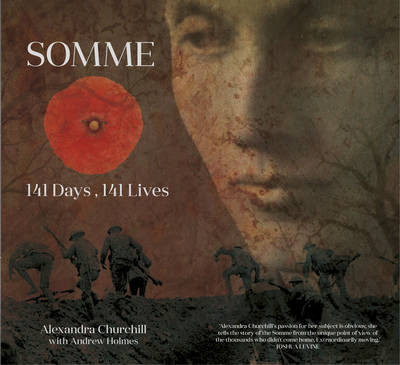
Somme, by Alexandra Churchill, with Andrew Holmes and Jonathan Dyer (The History Press)
The stories of the lives and deaths of 141 ordinary soldiers: one portrait for each day of the battle
The number of lives lost during the Somme is estimated at around a million. Unfortunately the stories of very few of them have been handed down for posterity. That is something Churchill aims to remedy, because she is more interested in the personal histories of the troops than broader strategy. She has written two well-received previous books about the Great War – Blood and Thunder, which details the exploits of Old Etonians in the conflict, and Over Land and Sea, which does the same for Chelsea Football Club and its supporters. In this volume, with the assistance of two co-writers, she has assembled biographies of 141 of the combatants – one for each day of the battle. Many striking photographs are also included.
© Copyright IBTimes 2025. All rights reserved.





















